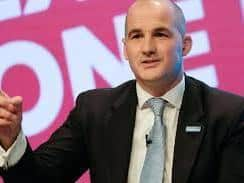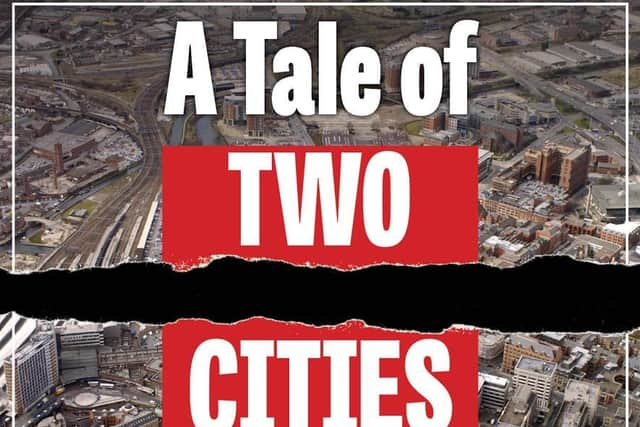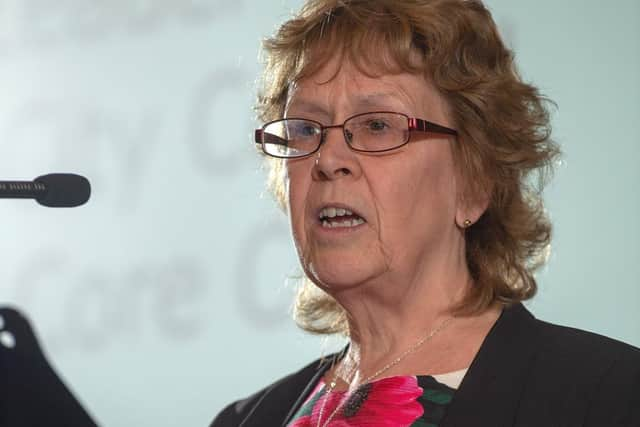Northern Powerhouse minister reveals what a devolution deal could mean for Leeds
and live on Freeview channel 276
Leeds and the surrounding region want more control, more power and more money to spend in the areas where city leaders know it is needed the most.
In this special series Yorkshire Evening Post reporter Emma Ryan examines the arguments for devolution, the challenges it brings and also how it has already started to make a difference in the other northern cities that have taken steps to move away from London controls.
Advertisement
Hide AdAdvertisement
Hide AdThe report follows the YEP’s A City Divided campaign which put a spotlight on the issue of social inequality in Leeds. Devolution was deemed to be the magic ticket to start tackling issues such as child poverty, lack of transport, crime and health.


On day one we speak to the Northern Powerhouse minister, Jake Berry, who was in Leeds to start deal discussions with the leaders of authorities across West Yorkshire.
“Devolution” is the term used to describe the process of transferring power from the parliament to local regions. Rather than being told by government where to spend funding, the authority and most likely a ‘Metro Mayor’, set up under the devolution process would decide where to spend it based upon more local strategic issues and need.
For example, they might create a transport project that would benefit the area or a scheme that helps rough sleepers into accommodation and then employment.
Advertisement
Hide AdAdvertisement
Hide AdHowever, they wouldn’t have a remit to address things like potholes, streetlights or grass-cutting.


Mr Berry said measures to serve education and tackle crime as part of the devolution bid that would be among the most relevant for Leeds.
He said: “A city like Leeds will benefit from increased education funding for primary and secondary school pupils, and particularly, lots of these deprived communities which you have in Leeds and other parts of the country.
“One of the big challenges they face is crime and being safe on the streets which is why I am so pleased that the government is committed to 20,000 police officers on the streets, making sure people are safe and going about their daily business should be a top priority.
Advertisement
Hide AdAdvertisement
Hide Ad“The government will play its part putting those 20,000 new police officers on the street and, if having formally announced negotiations commenced, we are able to include an exciting devolution deal for the Leeds City Region then a mayor will have significant powers and budgets to support that wider ambition that we all share.


“We have this whole agenda as part of the Northern Powerhouse to level up opportunity and to make sure, as we have already done, to include school funding for every primary and secondary pupil in the land to make sure that we iron out some of these inequalities.”
Although the concept of devolution for Leeds, West Yorkshire or as a county-wide arrangement has been in the pipeline for several years, it is only the last few months that have seen discussions gather pace.
It comes after a £30m a year South Yorkshire Devolution Deal was agreed last month between Sheffield, Doncaster, Rotherham and Barnsley leaders, following four years of talks, which will be put out to consultation.
Advertisement
Hide AdAdvertisement
Hide AdIf progress can be made, it is hoped that West Yorkshire’s deal, which is likely to be worth more because of the area’s larger population, can be agreed by March.
Throughout his talks with the YEP, Mr Berry who is the MP also for Rossendale and Darwen, stressed the fact that partnership was still as important as the devolved powers in making any deal effective and pointed towards how devolution has been working in other northern regions such as Liverpool, the Tees Valley and Manchester.
He added: “As a partnership, devolution can play a hugely important role in tackling many of those issues.
“If you look at both Liverpool and the Tees Valley the mayors there have used the money they have received from the government as part of devolution to find local solutions to tackle worklessness.
Advertisement
Hide AdAdvertisement
Hide Ad“For me that is how devolution can make the biggest difference because the people who know and understand both the social and financial and health inequalities across West Yorkshire and the north of England don’t necessarily work in parliament or Whitehall and that is why we are so keen on the West Yorks devolution deal to transfer significant power and money back to the people of West Yorkshire.
“There are very encouraging signs around homelessness in Greater Manchester and I pay tribute to the work that Andy Burnham has done - he has been a real trailblazer.
“It has been a partnership, it is funded both by the Government and the Greater Manchester Combined Authority. There are some very early but initially encouraging statistics that show that these local solutions can help tackle that.
“These are long term challenges and that is why the government is making a long term commitment to the north, particularly to West Yorkshire and the Leeds City Region today with formal negotiations commencing to work in partnership to really change the life chances of everyone who lives in these regions.”
Advertisement
Hide AdAdvertisement
Hide AdLast year the YEP ran the social inequality series, A City Divided, which looked at how issues in education, child poverty, health and housing were seriously impacting upon people, their every day lives and future prospects.
It was here that the Leeds City Council leader, Judith Blake said trying to fix inequality in the city was “like going into the ring with one hand tied behind your back”.
She said: “It has been absolutely relentless and in Leeds we have the wherewithal to make significant progress to meet the needs of the disadvantaged but we are very, very restricted.